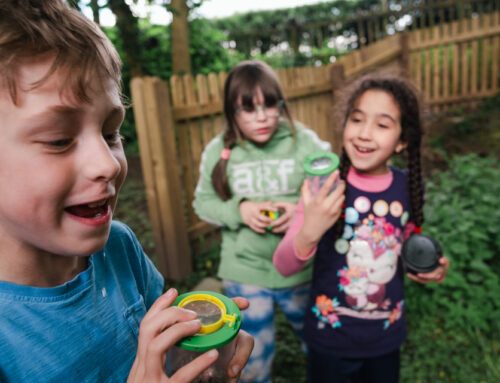An important group at risk of underachieving across the UK is high potential learners from disadvantaged backgrounds. Even where this group is making good progress, it is likely that they will not achieve the same number of Levels 9 – 7 at GCSE or A* – A at A Level as their non-disadvantaged peers, limiting their chances of going on to the full range of A Level subjects or to Russell Group universities, including Oxbridge. This has obvious implications for social mobility, personal fulfilment and the lack of social diversity in many universities and professions.
This blog looks at ideas to support this group, particularly in secondary schools and Sixth Forms but many ideas can fairly easily be transferred to primary schools. The suggestions come from a range of sources and from talking to the young people themselves about what makes a difference.
Identification
This blog does not cover identification so please see Potential Plus UK’s advice sheets on Identification of High Potential Learners and Subject Specific Identification of High Potential Learners (free to members). However, it is so important to make sure that identification strategies are able to recognise the potential of disadvantaged learners who may present quite differently to their non-disadvantaged classmates. For example, it is very likely that this group will not have a wide range of sophisticated vocabulary, will probably have read less and may be unable to see the benefits of education, as their expectations will be shaped by family experiences of school and work.
When creating the high potential (gifted and talented) register, pay particular attention to disadvantaged learners who will have had to work so much harder to achieve the same as their non-disadvantaged peers. Could they be viewed with more generosity? If the general guidance is, for example, a Cognitive Assessment Test average score of 114, could it be lowered to 108 for disadvantaged learners? Could you organise opportunities to demonstrate creative thinking that aren’t dependent on vocabulary, for example, ‘How many uses can you think of for …?’ A Year 7 disadvantaged learner with a Scaled Score of 112 is likely to have more potential than a non-disadvantaged learner scoring 112.
What Do Disadvantaged High Potential Learners Need From Teachers?
To know that you have high expectations of them. Show that you believe in them, are confident that they will succeed and that you will not accept lower standards than they are capable of because you really care about their progress. Make it clear that you assume university is for them and that they will be going – start really early and keep going.
Your approval and to know you genuinely care. Talk to learners about their interests, using these to build rapport. Relationships are absolutely key for this group to succeed.
Someone who engineers opportunities for them to see themselves as young people with great potential and who is part of a group of high achieving peers. It is very powerful for disadvantaged learners to be included with non-disadvantaged learners. Avoid groups made up of disadvantaged learners only and think carefully about how you can provide supportive role models of diligence, good study skills and coping with challenging learning, for example, through your seating plans and groupings.
To see what excellent work looks like, e.g. A* at A level and Level 9 at GCSE. There won’t be anyone at home to show them what a great introductory paragraph looks like, to ensure the use of sophisticated, academic vocabulary, to teach inference, etc.
Live modelling. An exemplar is great but being shown a perfect example does not show you how to recreate it. For example, if someone gave me a perfect sourdough loaf, it would not help me to make my own loaf and would probably just make me feel inadequate and give up entirely! However, if someone explained the features of that loaf to me (texture, crust, shape, flavour …) and then took me through making it step-by-step whilst explaining each part of the process out loud, I would be able to follow, keep up, copy and recreate something good. This builds confidence and, gradually, that scaffolding can be taken away – I might still need to ask questions, need some encouragement and reminders of the techniques but, bit by bit, I would need less help and become ready to do it independently. So it is with an essay, print-making, reading data/graphs, designing experiments or artefacts, short mark questions …
A rich range of experiences beyond the school e.g. visiting universities, museums and galleries, reading newspapers and journals, reading for pleasure, carrying out voluntary work, attending master classes and free talks, taking part in sports, theatre trips, work experience, talking to professionals and current university students …
To take part in longer term commitments, particularly in the run up to university application as this shows an ability to sustain focus and manage a workload, e.g. Duke of Edinburgh, debating, Extended Project Qualification, volunteering, mentoring others.
A rich academic vocabulary as well as the sophisticated vocabulary needed to secure the top grades. Teachers are usually really good at teaching academic vocabulary but vocabulary that is not subject specific is also very important – I’ll never forget the Year 6 SATs comprehension which talked about ‘the lawn’. Disadvantaged learners and those for whom English was an additional language were far less likely to answer the questions correctly. This was not because they were less intelligent but ‘lawn’ is really not a word inner-city disadvantaged children were likely to have come across!
Academic writing skills. A key to success at A Level and at university.
Access to resources, e.g. give disadvantaged learners hard copies of revision documents, copies of academic texts, print-outs of Powerpoints and the exam specification. Cut up card to use as flashcards and record cards for revision, provide see through pencil cases with a couple of pens, a pencil and eraser for exams, etc.
To understand the threshold concepts so they can go on to excel once secure in the skills and concepts needed in your subject. Any work missed must be provided and explained, possibly by another learner, so they have the building blocks for the next steps. Without this, confidence will disappear quickly.
Opportunities to make mistakes and learn from them in a safe environment. If learners are not confident, they are more likely to avoid making mistakes. This will not only hinder learning in school but make life very difficult once at university when it will not be possible to avoid mistakes. This is thought to contribute to large numbers of disadvantaged learners dropping out of university in the first year; they will never be able to perfect everything once at university so the confidence to accept making mistakes will be a long term gift.
Opportunities to learn and read beyond the curriculum. Reading needs to be provided as hard copies as these learners may not have access to the internet and printing facilities are unlikely to be readily available. Setting aside time to watch a TED talk/documentary will mean it actually happens whereas a recommended TED talk is likely to be forgotten or even inaccessible.
Help with organisation so the resources are in order for home learning, lessons and revision. If you can provide folders and dividers, do. Give time/instructions to secure work into folders/books and carry out regular checks so they know you are on to them! To quote a Year 12 learner, “My Maths folder is a mess, please don’t look at it. You can look at my history folder. It’s really good because my teacher checks it every week so I know I need to sort it out”.
To know the careers your subject might lead to. Build this into your teaching, organise a time to talk to the careers advisor, chat to them about possible careers, set up a display.
Help prioritising the workload, planning ahead to meet deadlines with regular checks on progress so it doesn’t all pile up. Provide offers of help and encouragement along the way to keep them motivated.
Time to practise and revise in order to achieve mastery. Approach questions in different ways to prepare learners for exam questions which may be worded or set out differently, or may require them to apply knowledge learned in a completely different setting or context – “What have you learnt about other rivers that could apply to this river?” “We haven’t studied the National Health Service but why do you think that the overuse of antibiotics might have an impact on it?”
A quiet place to study with access to resources and IT. Set aside a space for silent study away from areas where learners can socialise. Sixth Form teachers need to make sure learners are clear about what needs to be studied during this time to consolidate learning or in preparation for the next lesson. Relaxed homework clubs will provide space, support and IT for those who do not have this at home.
Motivation in the short and longer term. Quick wins, experiences of success and visible progress will help them to keep going when the learning gets tougher. Point out when the work improves, particularly as a result of acting on feedback and redrafting.
To be taught how to take effective notes. This is a skill that needs to be explicitly taught and learnt, particularly in the move to linear GCSEs and 2-year A Levels when the notes will need to make sense long after writing them.
To be taught effective revision strategies in your subject. It is far less effective to teach general revision strategies than to specifically teach how to revise in a subject as, for example, revising Maths will be very different to revising History. Model it live, so that they can hear your thought processes. Provide a few different strategies to help them find what works for them.
Opportunities to think outside of the box and develop leadership skills. Assign roles in class carefully and engineer opportunities for learners to lead inside and outside the classroom. Recognise this skill, e.g. mention it to the Tutor who can say they heard it was done well.
Chasing up when absent or late. There is a direct link between attendance and attainment so make sure the culture is one where not attending is not an option.
Regular visits to the library and plenty of time to do the reading. Again, this is good preparation for university.
To find and pursue an interest. Their horizons will be narrower than those of non-disadvantaged learners so school needs to provide opportunities until they find their interests. In a high learning potential questionnaire as part of induction to Year 12, learners were asked the question, ‘What would you like help with?’ and out of about 10 options, most chose, ‘Finding an interest or passion’.
Someone to ask them the exciting questions they may not have thought about and someone they can ask questions of. Even if their question doesn’t seem particularly relevant to the topic, welcome the interest shown and answer the question when it doesn’t distract the rest of the class.
To contribute fully in class discussion. Structure debates and discussions carefully so everyone has a role and a say. Value contributions as a less confident learner may never contribute again if they do not feel they have been listened to and made useful points. This will mean using real skill when the contribution may not be accurate!
To know that you take great pleasure in teaching your subject, especially in the Sixth Form. It is a privilege to be able to teach A Level and learners say, again and again, that the teacher’s enthusiasm for the subject and for teaching them makes an enormous difference to their enjoyment of the subject and to their confidence that they will be able to do well.
At A Level, a mentor who just been through the pressures. Someone who can reassure and provide practical help, e.g. with organisation, revision timetables, accessing help, talking through things they found hard and how they coped. Consider Year 13 mentoring Year 12.
Some Suggested Enrichment Opportunities
Encourage, promote, support participation in …
- Supporting younger learners with home learning or reading
- In-school talks by staff with PhDs or expertise in a topic, or invited speakers
- Free talks (most are recorded), e.g. by Gresham College, UCL, Kings University
- Become lunchtime supervisors (or any other paid/voluntary role in school)
- Duke of Edinburgh Award
- Work experience and work shadowing
- Running a club for KS3
- Peer mentoring KS3 or 4 learners in their A level subjects
- Reading for pleasure and to deepen subject knowledge
- Subject ambassadors: representatives at open evenings, options afternoons, etc
- Voluntary work in the community
- University visits (more than one they need a range of visits to find where they feel at home)
- Theatre, cinema, museums and galleries
- Join a dance, drama, music, art or sports class in or out of school
- Join a subject society
- Master classes at universities or at local schools (private schools are often helpful)
- Summer schools
- Scholarships, e.g. Arkwright Foundation, Sutton Trust US programme
Sources of Further Information
- The Sutton Trust US programme https://us.suttontrust.com/
- The DfE Report 2018 Research to understand successful approaches to supporting the most academically able disadvantaged pupils (Stephen M. Cullen, Siobhan Dytham, Nikita Hayden). https://www.gov.uk/government/publications/approaches-to-supporting-disadvantaged-pupils
- The Sutton Trust Potential for Success https://www.suttontrust.com/our-research/potential-for-success-schools-high-attainers/
- Informed Choices Russell Group https://russellgroup.ac.uk/policy/publications/informed-choices/
Joy Morgan is the Assistant Headteacher and Specialist Leader of Education at Parliament Hill School, London. Parliament Hill School received the Above and Beyond Awards Effective Provision in School Award in 2019.






